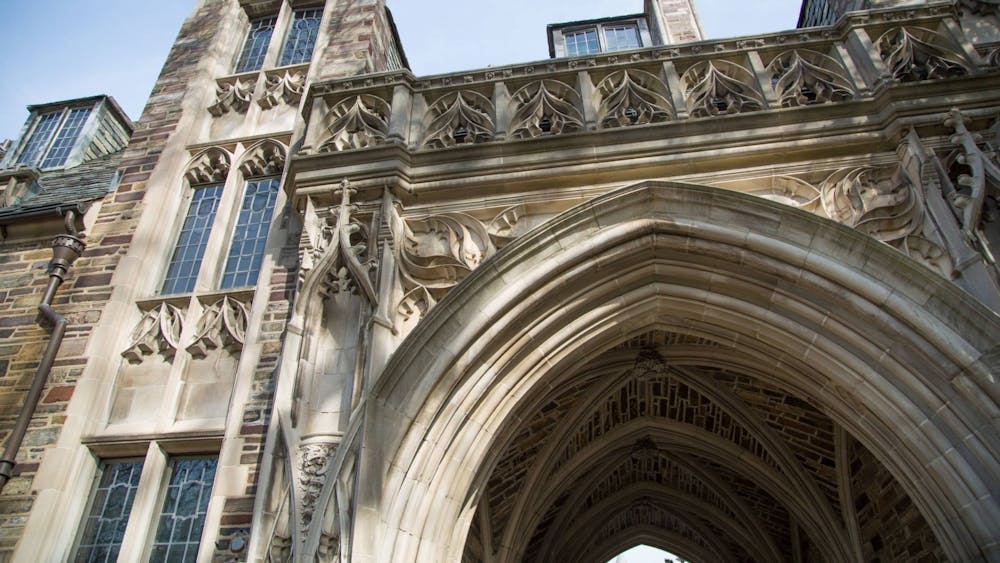The archway leading through Lockhart Hall, located beside the University Store, was renamed to memorialize Kentaro Ikeda ’44, who was the only Japanese student at Princeton during World War II.
Ikeda lived in Lockhart Hall as a student, and the naming is intended to “recognize his inspiring persistence during extremely challenging circumstances,” according to a University press release.
The change went into effect on Oct. 4, following approval by the University’s Board of Trustees of a recommendation from the Council of the Princeton University Community (CPUC).
Ikeda was born in Kanazawa, Japan, and moved to New Jersey in 1938, attending the Lawrenceville School before beginning at Princeton.
Japan’s attack on Pearl Harbor in 1941 changed Ikeda’s experience as a student at the University drastically. According to the Mudd Manuscript Library Blog, the Department of State sent Ikeda a deportation notice during his sophomore year, after President Franklin D. Roosevelt signed Executive Order 9066, which ordered the internment of Japanese Americans.
Ikeda reached out to University administration for help, working with Assistant Dean Burnham Dell, the Federal Bureau of Investigation (FBI), and the U.S. Department of Justice to find a way to avoid deportation. The government agreed to let Ikeda stay in the United States as an “alien enemy parolee,” and the University was required to closely monitor him.
To this end, Ikeda met weekly with Dell, who would then write reports detailing Ikeda’s activities to the Immigration and Naturalization Service.
Ikeda was barred from leaving the University campus without gaining permission from the U.S. District Attorney, according to the Mudd Manuscript Library Blog. His bank account was also frozen, and he could not communicate with anyone in Japan, including his family.

Moreover, after the United States entered the war, the FBI searched Ikeda’s dorm room on campus, according to an account his widow Young Yang Chung gave to the Princeton Alumni Weekly (PAW).
“He was very unhappy and scared. People were coming in almost everywhere, searching through every drawer, every book, even looking in between the pages,” she said in the interview.
However, Chung said that Ikeda found friends who would help comfort him and University administrators who would invite him to dinners during the holidays.
“Until he died, he was so grateful to Princeton University because he was protected by the University, so he avoided going to the camps,” Chung told the PAW.

Indeed, Ikeda’s neighbor in his Lockhart Hall dormitory was Richard Eu ’44, and the two quickly became friends and remained close for the rest of their lives. Eu’s son eventually married Ikeda’s daughter.
Following news of the renaming, Chung told the University that she was grateful to the institution for “protecting his life during the war.”
Ikeda concentrated in economics and his senior thesis, entitled “Economic Life in Japan” focused on his home country. In it, he remarked on the importance of learning about other nations in preventing war.
“A man does not hate others, if he actually understands them,” he wrote. “Friendly relations among nations can only be obtained through understanding, and the complete understanding among nations can only be attained by knowing each other.”
After graduating, Ikeda went to Yale to teach Japanese, staying on the university’s faculty for seven years. He then moved to New York to start a tea importing business. Ikeda died in 2011, at the age of 92.
Sandeep Mangat is an Associate News Editor who has reported on labor shortages on and off campus, University guidelines regarding the COVID-19 pandemic, international student life, and research led by Princeton faculty. Please send correction requests to corrections@dailyprincetonian.com.








